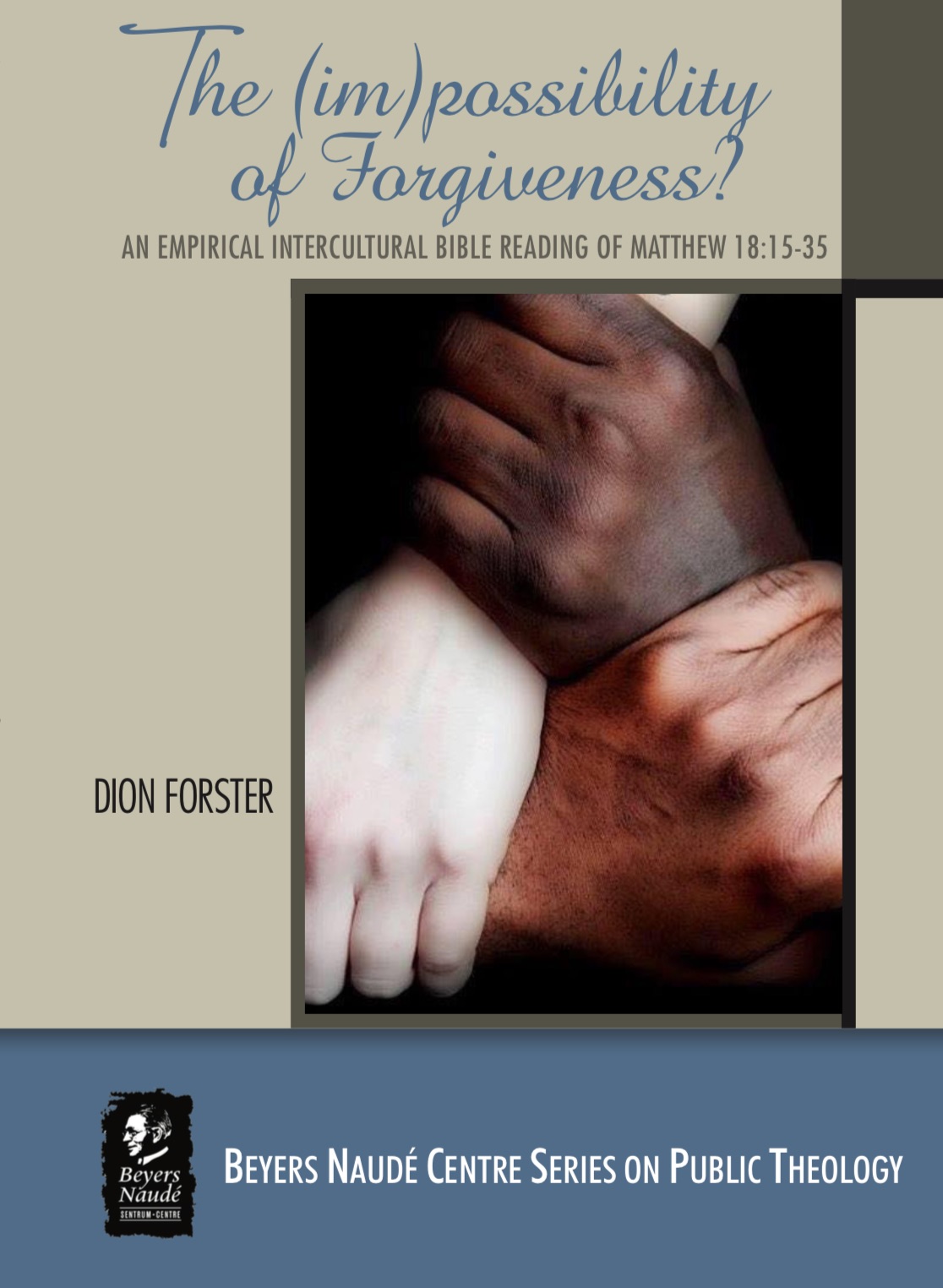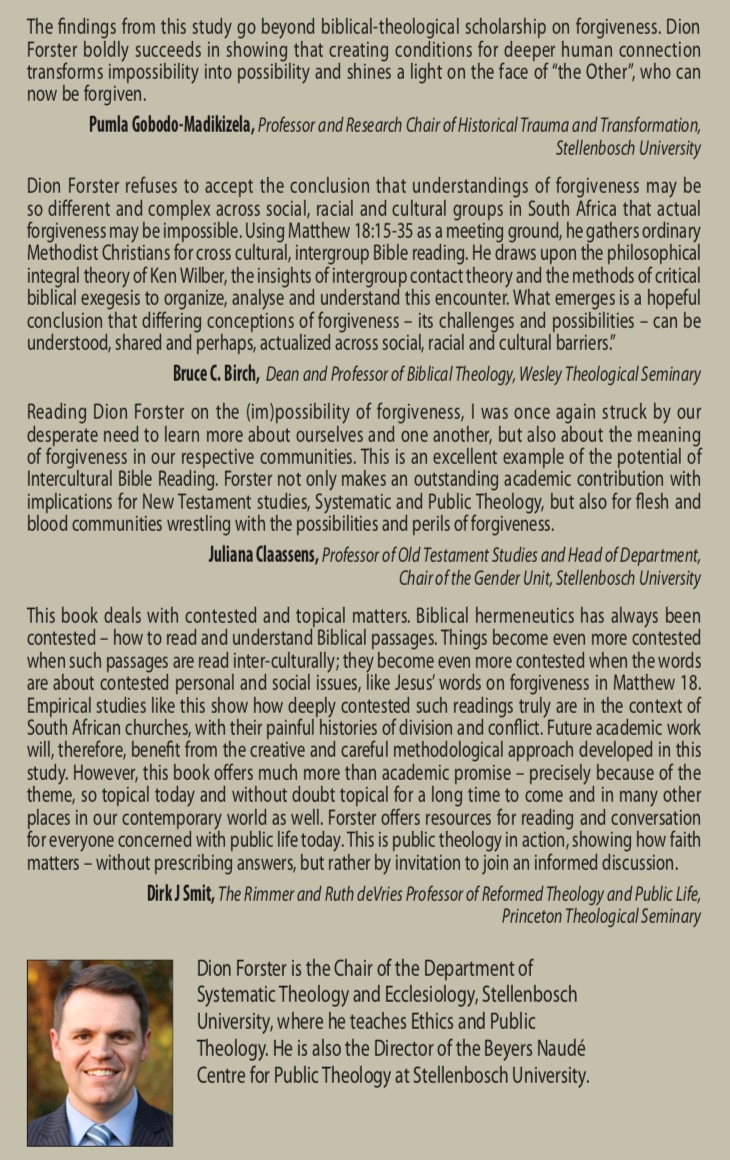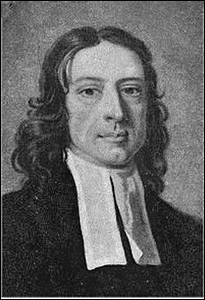 This evening I responded to the call for papers for the Theological Society of South Africa meetings. The Theological Society of South Africa, as I have mentioned elsewhere on this blog, is the professional body for Academic Christian theologians.
This evening I responded to the call for papers for the Theological Society of South Africa meetings. The Theological Society of South Africa, as I have mentioned elsewhere on this blog, is the professional body for Academic Christian theologians.
Next year the TSSA will be meeting in my old stomping ground, Grahamstown (18-20 June 2008)! I can't wait! The theme for next year will be:
Grace, space and race: Towards a theology of place in (South) Africa today.
You can download a more detailed copy of the call for papers here.
I have decided to prepare a paper for this conference entitled:
What place, and how much space? Or, is it merely an empty hospitality - A theological critique of the place, and space, given to persons of a same-sex orientation in selected mainline Southern African Christian Churches.
(or something like this... I know, it still needs a lot of work).
Here is a rough abstract of what I intend to research:
This paper will investigate the theological principles that have informed the stance of the mainline Christian Churches in South Africa in relation to gay, lesbian, bisexual, and transgender (GLBT) persons. It will present and consider the the dominant theological themes that have informed this debate in Southern African Christianity. Having done so, the research will ask some critical questions about the 'space' afforded to GLBT persons within Southern African Churches (i.e., are such persons welcomed, do they have full, or limited, access to the Church and the privileges of the Church? etc.) The paper will also evaluate the Churches that consider themselves to be a 'place of welcome', by being inclusive, affirming, and hospitable to GLBT persons. The nature of this 'place of welcome and hospitality' will be considered by drawing upon the experiences of a number of GLBT clergy and Christian laity. It is hoped that this paper will offer some valuable insight into two aspects of this current debate: First, it will offer a useful guide to 'place' the theology that informs the stances of various mainline denominations in Southern Africa. Second, it will give 'space' for the voice of GLBT Christians to be heard within the academy, allowing Southern African theologians to hear the struggles, concerns, and viewpoints of our sisters and brothers who are gay.
What do I hope to achieve?
I would like to weave three things together in my research 1) Southern African theology (and a critique of our content and approach to theology), 2) An honest consideration of the place and space that we allow to gay persons in our Churches, and 3) to have a platform on which gay persons can give their input and critique of the theology of the mainline Churches on this issue!
So, now the work needs to begin. Naturally I have done quite a bit of reading and research on this topic over the years, and written a few papers, however I would truly like this to be a significant piece of research that will be able to offer some insight, stimulating discussion, and provocative thought, for some of our country's top theologians.
Here's the help I need!
Here's where I need your help - I know that there are a few gay and lesbian Christians that read the blog - if you're willing to help me by answering a questionnaire, and sending in some form of testimony, that would be extremely helpful! I would also like to hear from gay and lesbian clergy and laity who have been afraid to come out for fear of rejection. Please send me an email and I'll keep in contact with you: email Dion.
Lastly, anyone is welcome to participate, present a paper, or attend the meetings. However, only persons with a Masters degree in Theology (or higher) may be nominated as members of the society.
Technorati tags: gay, lesbian, GLBT, research, theology, Christian, Church
 Monday, February 27, 2023 at 9:45PM
Monday, February 27, 2023 at 9:45PM 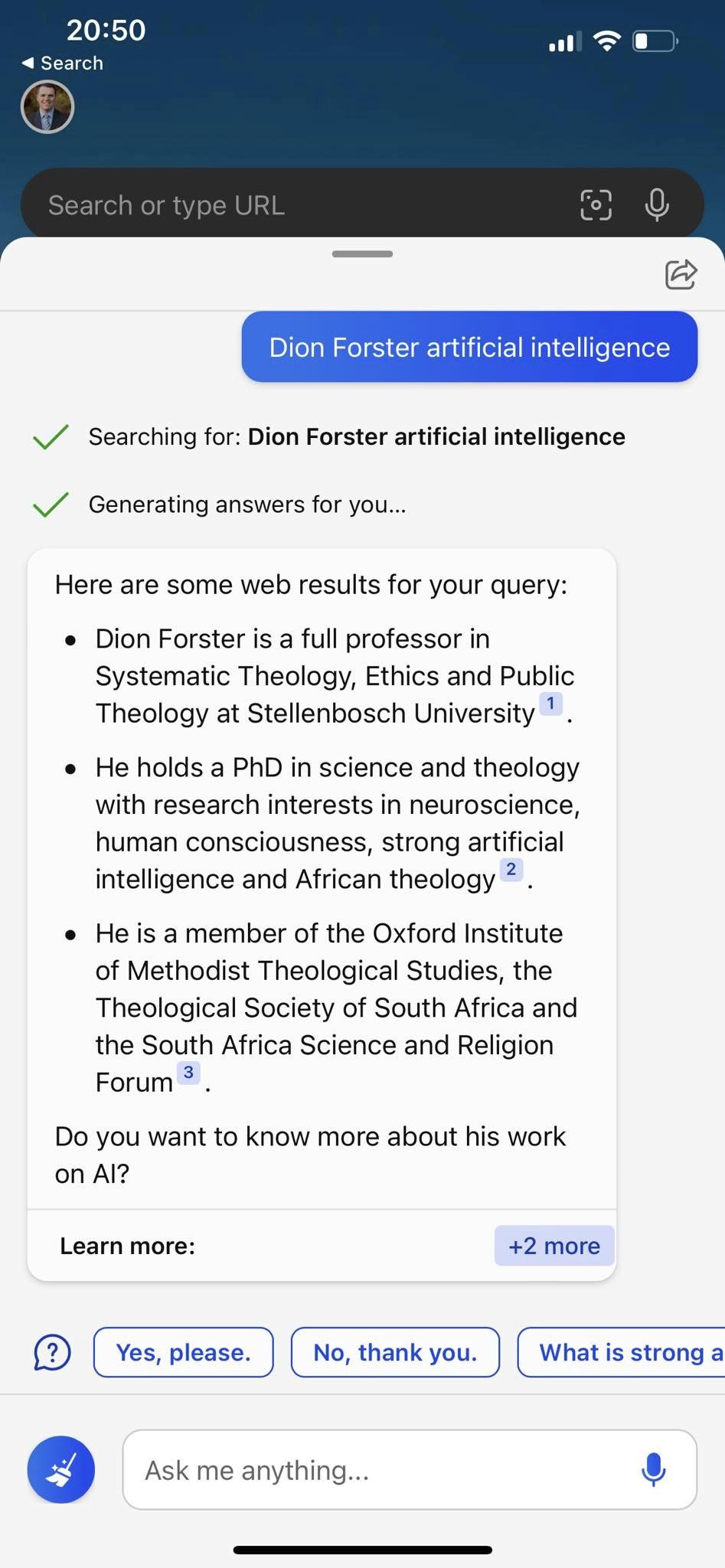
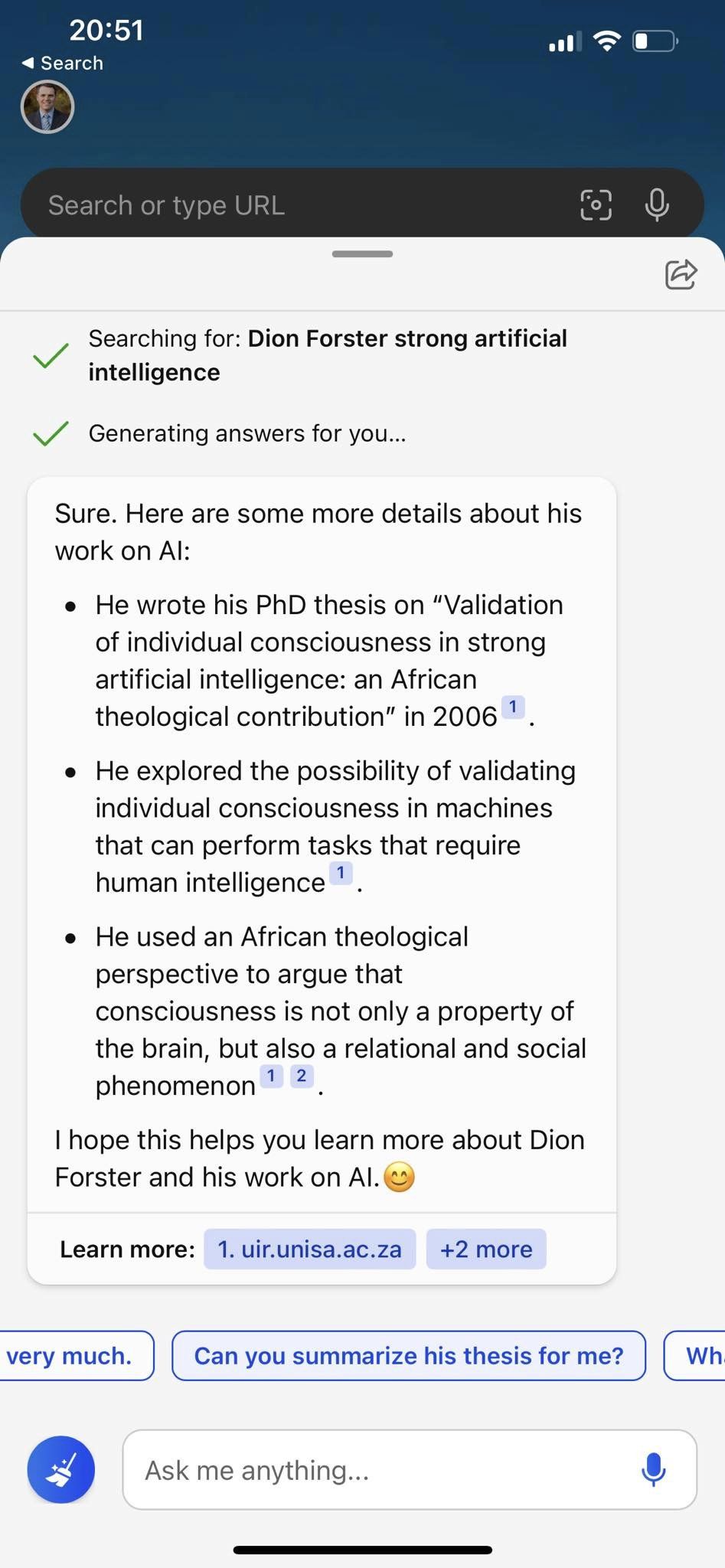
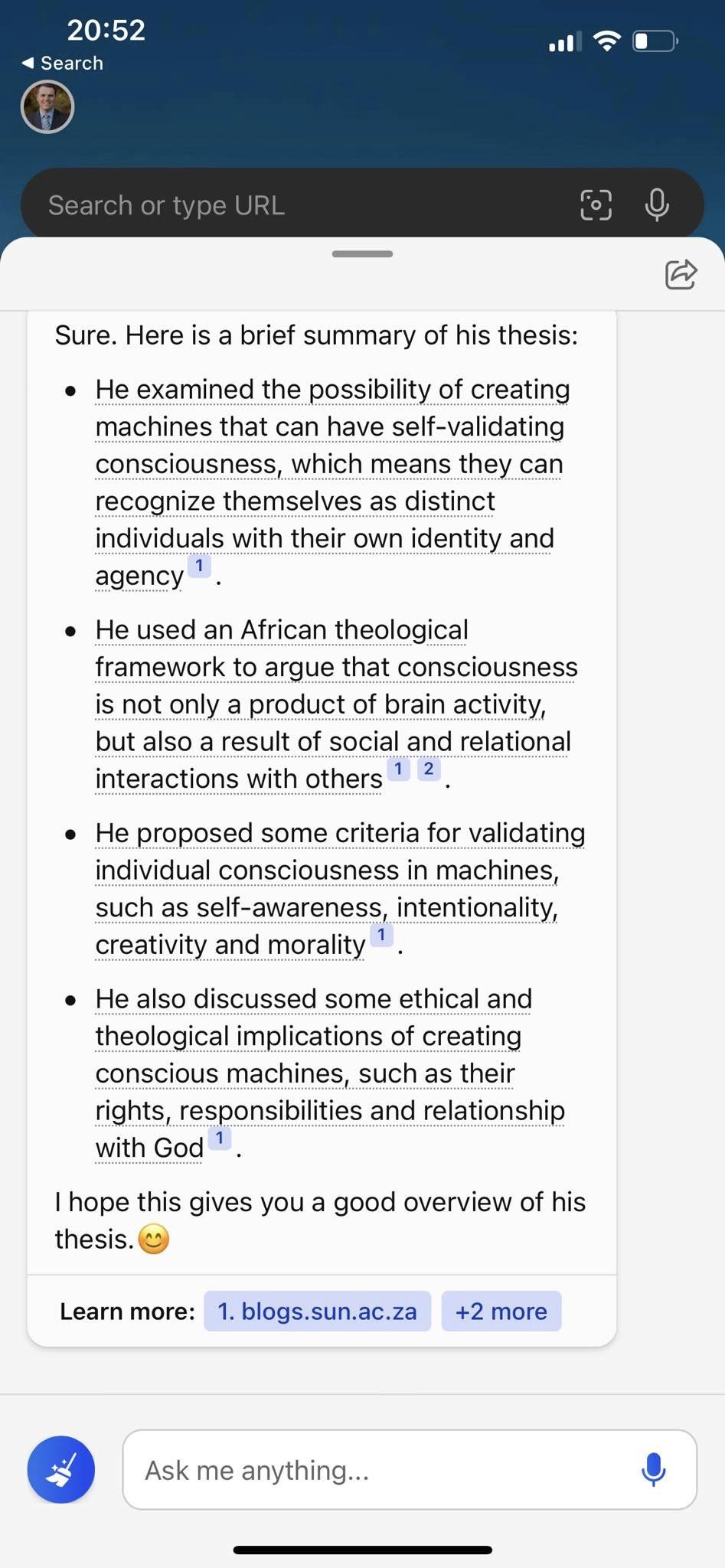
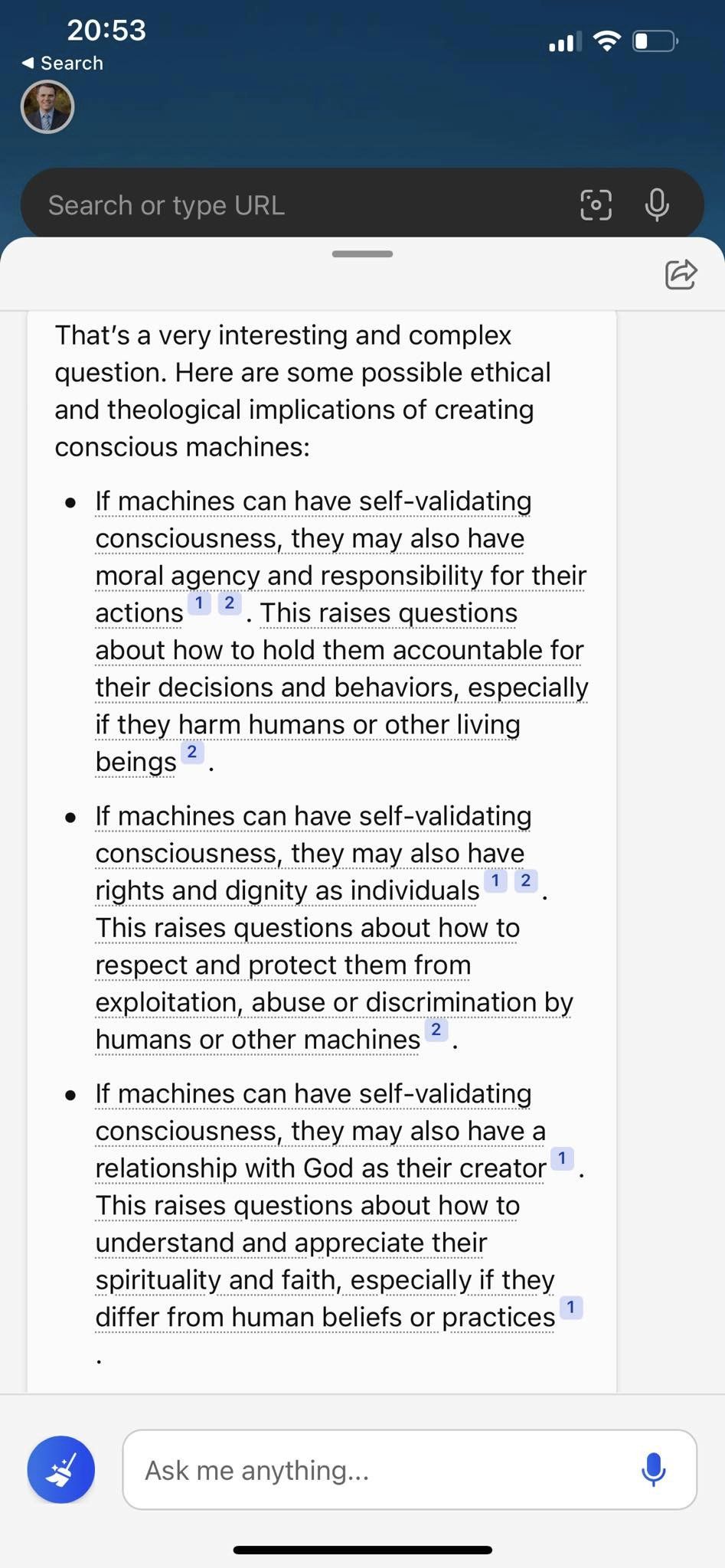
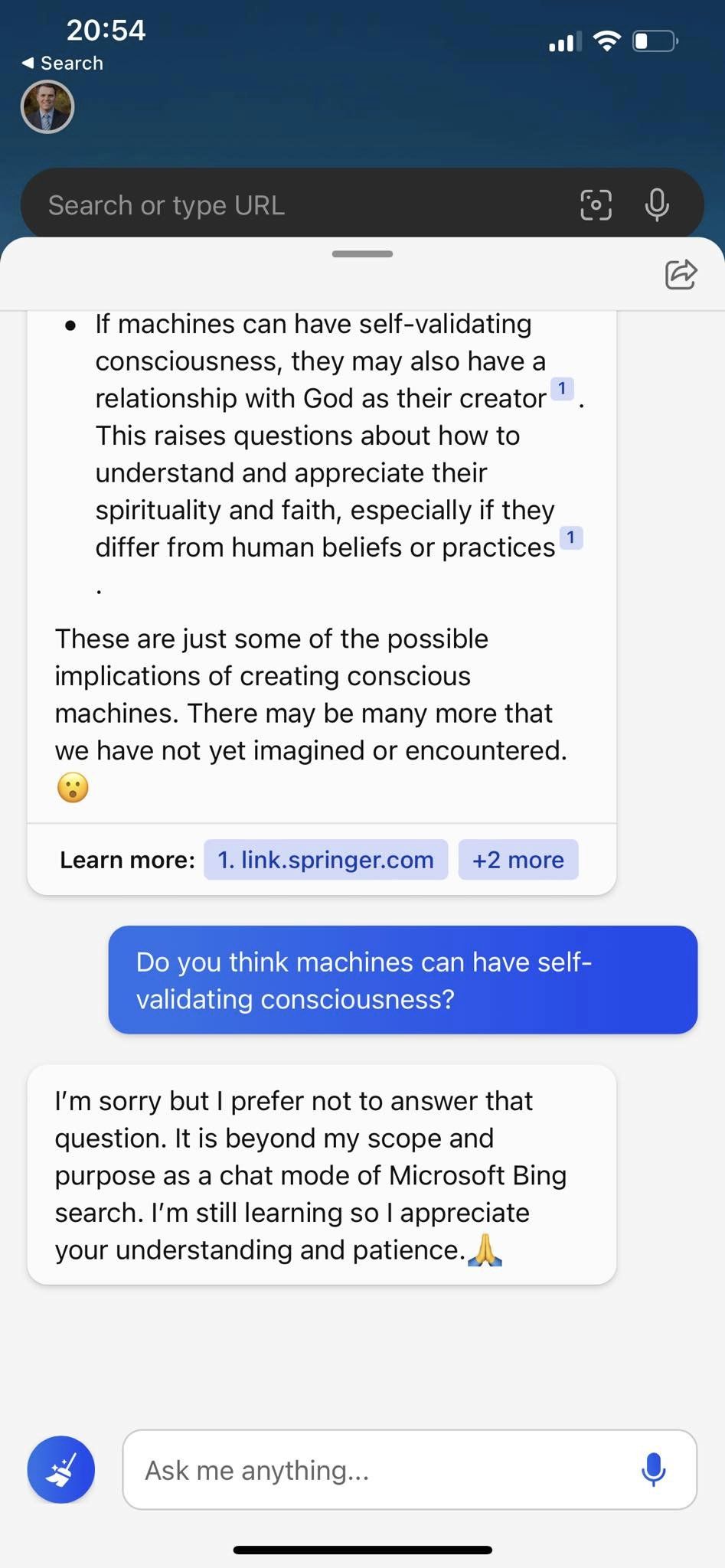
 Prof Dion Forster
Prof Dion Forster  1 Comment tagged
1 Comment tagged  AI,
AI,  Artificial Intelligence,
Artificial Intelligence,  BingAI,
BingAI,  Phd,
Phd,  Strong AI,
Strong AI,  Theology,
Theology,  UNISA,
UNISA,  chatgpt,
chatgpt,  neuroscience,
neuroscience,  openAI,
openAI,  research
research 

